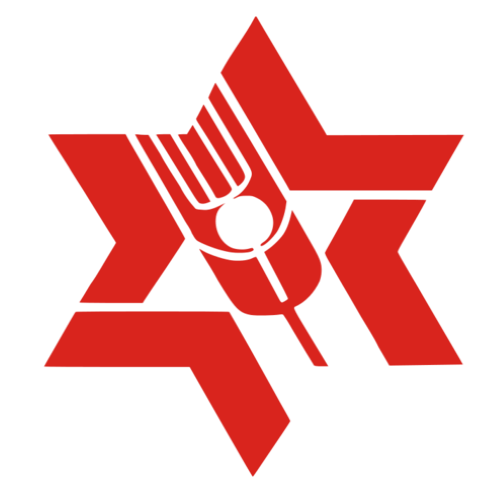By Emma Pasternack, Bogeret of HDNA, Madricha at Eshbal Youth Village
*content warning* - Emma describes survivors’ graphic accounts of the horrors of the attack on their kibbutzim
Eilat the city has around 50,000 residents normally. There are currently around 50,000 refugees from the south in Eilats hotels.
I spent my week in Eilat, volunteering with the movement in a hotel of refugees from the envelope. In the hotel were mainly two communities- Kibbutz Reim and Kibbutz Ein Hashlosha. Both kibbutzim have NOAL kenim.
I spent the majority of my time making bracelets with kids or chatting with the madrichot from the kibbutz. People kept asking me how I am doing and isn’t it so hard what we are doing here. The main emotion I felt was shock. Shock because I had never realized or thought much about what it’s like to survive a pogrom. I had never realized until now - the sheer number of things you don’t think about when you think about war and being a refugee.
The first thing that struck me at the hotel was the washing machines lined up in the courtyard. It struck me because it was so out of place at a fancy hotel like this one. That there would be so many washing machines and lines of clothes hanging to dry in the sun.
I was struck by the donations tent filled with donated clothes right next to the shiva tent where the community sat shiva in a rotation for different murdered members of the kibbutz throughout the week.
Then there were the horror stories- the never-ending stories of that Saturday. I was very careful not to ask but people, especially the parents, are itching to tell their stories. I think they are afraid we might mistake them for people who are ok. They need us to know that they are hurt and in mourning.
I heard stories of children whose parents were killed while they were left alone in the house. Stories of dead brothers and sisters and mothers and fathers. One girl described to me having to go to the bathroom in a bucket in the safe room. Another boy looked up at me and said that his father is a farmer but his alarm didn’t go off on Saturday. At first I didn’t understand why he told me this, but he went on to say - if his alarm had gone off he would be dead.
The children described going hungry because they couldn’t come out of the safe room for hours on hours. They described wanting to go home but being afraid to go home.
Then there are the never-ending funerals. Every few days someone goes away to a funeral or to sit shiva.
The young people are scared. I asked them if they were ready to go back to school and one Madatz told me that on the one hand he wants to feel normal and learn math, on the other hand thinks that if he tries to concentrate on a math problem he is too afraid of what thoughts may come up.
The children understand much more about what happened than you might think. You can also hear them repeating sentences they have heard from the adults in their life. They speak of terrorists and the army as though they understand exactly what these words mean. It sounds forced and awkward coming from a 7-year-old’s mouth.
The state has offered to move the residents of Kibbutz Reim to Tel Aviv all together to a few empty apartment buildings. It’s a nice solution given everything, but these are kibbutznikim. Even if they resettle in Tel Aviv it’s a huge loss to their way of life.
I think that people don’t understand this aspect of war. That whole thing of the day after. There’s the day after and the months after and the years after.
Everyone moves on but life never goes back to the way it was before. The world forgets until the next war. But these people’s lives will never go back to being the way they were. And it is our role as fellow Jews to not leave them alone. It is our role to remember along with them.

